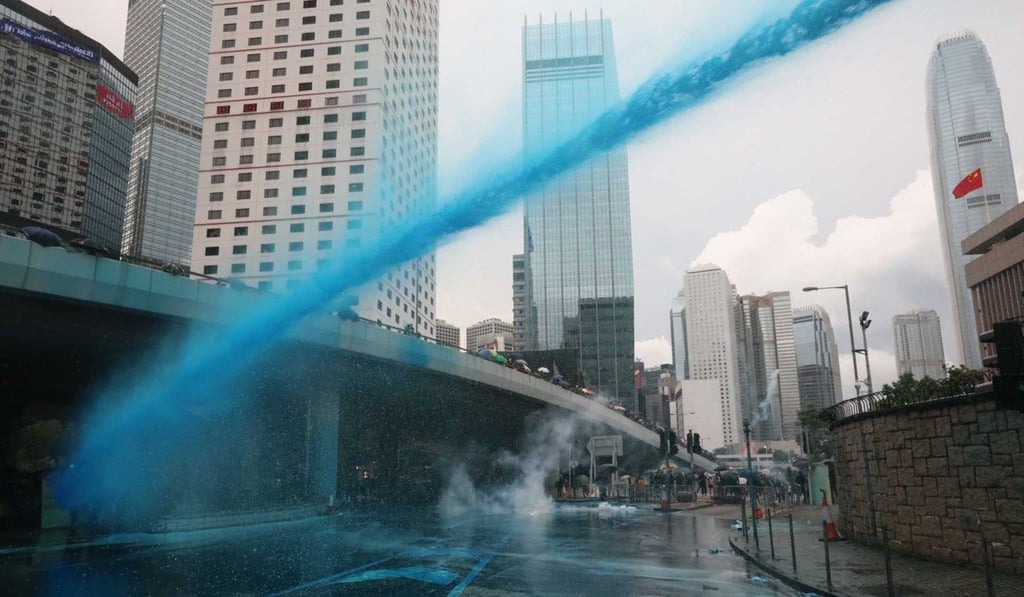Hong Kong protests: Amnesty International praises Hongkongers for standing up in face of ‘abusive policing’
- Human rights group highlights anti-government protests in annual report
- Amnesty accuses city’s police force of ‘arbitrary arrests, physical assaults, and abuses in detention’

Amnesty International has praised Hongkongers for regularly taking to the streets since June last year in the face of what it claimed were “abusive policing tactics” that included the “wanton use of tear gas, arbitrary arrests, physical assaults and abuses in detention”.
In its annual report on the Asia-Pacific, the international human rights group also said the struggle against the established order had been repeated all over the continent.
The cover of the reports shows a picture of Hong Kong protesters using umbrellas to shield themselves from the pepper water and blue dye fired from a police water cannon during an intense clash in Admiralty last year.
The protests, which were triggered by the now-withdrawn extradition bill, have morphed into a wider campaign for more democracy and the creation of an independent inquiry commission to investigate police use of force during the demonstrations.

Clashes between protesters and police have intensified over the past few months, with masked radicals hurling petrol bombs and bricks, and shooting officers with bows and arrows.